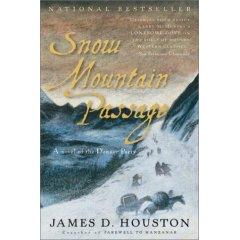
written by Jodi Picoult
It's been a long time since I've gotten worked up enough about a book that I actually cry over it. I don't know, maybe this says something about the dearth of good literature that crosses my coffee table. (Oh wait, I don't have a coffee table.) All I know is, I can count on my pal Janet to pass along a good gut-wrenching read when she finds one, and she did. I figure any book that reduces me to whimpering on my couch at three in the afternoon has to be pretty good.
The gist of the story: there are two sisters. One's 16 and in the late stages of a wicked form of leukemia. The other, who's 13, was conceived specifically to be a donor for her sister and has undergone all kinds of medical procedures in order to prolong the older sister's life. The novel begins with the 13-year-old tenuously seeking out a lawyer to help her gain medical emancipation from her parents.
As if this isn't enough, add to the mix a controlling and martyr-like (but well-intentioned) mother, a dad who's caught in the crossfire, a neglected and rebellious older brother, and you have the makings of a pretty profound page-turner.
I like the way the auther puts it: "...this isn't an easy book, and you know from the first page that there are no easy answers."
Really cool elements:
- Picoult's writing style is easy and inviting. Throughout the book, she gives voice to each of the main characters, flipping back and forth among each of their perspectives. If that sounds annoying, give it a chance anyway — it's surprisingly easy to read because Picoult does it so well. I found it pretty amazing that she could, for example, go from being a 13-year-old girl, to the fortysomething firefighter dad, to the used-to-be-attorney mom, to the slimey (but yet likeable at some levels!) lawyer who represents the main character. Only thing that felt weird was, the perspective of the sick daughter was never revealed until the very end. It will become obvious why, if you read through to the last page.
- Though certain characters cause a lot of messy moral themes to surface (drug use, promiscuity, arson, and parental rights are a few that come to mind), there is some form of resolution to many of these problems in the end.
- And speaking of the end. If you like twisty plots like I do, this is the book for you. If you hate being shocked, better read the last chapter first.
Not-so-cool elements:
- This is a great parable about human love and sacrifice, and because the main characters are teenagers, about 80 percent of the book is awesome material for the 13-and-up crowd — especially since readers of that age are beginning to look outside themselves and ponder larger issues of morality. Only problem is the other 20 percent of the book. Particularly the parts that focus on the unruly older brother, who uses some pretty raw language and gets himself into all sorts of mayhem while the rest of his family is focusing on the sick sister. There's also some hanky panky between the attorney and the court-appointed guardian ad litem, which seemed unnecessarily explicit.
- For being such a realistic book, portions of the ending seemed a little too tidy, maybe far-fetched. Nuff said. I won't spoil it for you.




